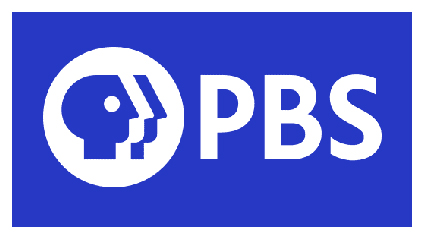|
The Public Broadcasting Service (PBS) is an American public broadcaster and television program distributor established in 1969. PBS began operations in 1970. It is a nonprofit organization and the most prominent provider of educational television programming to public television stations in the United States.
Since the mid-2000s, Roper Opinion Research polls commissioned by PBS have consistently placed the service as the most-trusted national institution in the United States. A 2016-2017 study by Nielsen Media Research found 80 percent of all U.S. television households view the network's programs over the course of a year. PBS is not responsible for all programming carried on public television stations, a large proportion of which may come from its member stations and independent producers. This distinction regarding the origin of different programs on the service present a frequent source of viewer confusion.
PBS has more than 350 member television stations, many owned by educational institutions, nonprofit groups both independent or affiliated with one particular local public school district or collegiate educational institution, or entities owned by or related to state government.
PBS is funded by a combination of member station dues, the Corporation for Public Broadcasting, National Datacast, pledge drives, and donations from private foundations and individual citizens. All proposed funding for programming is subject to a set of standards to ensure the program is free of influence from the funding source. Approximately 55-60 percent of public television's revenues come from private membership donations and grants. Most stations solicit individual donations by methods including fundraising and pledge drives or telethons.
|


